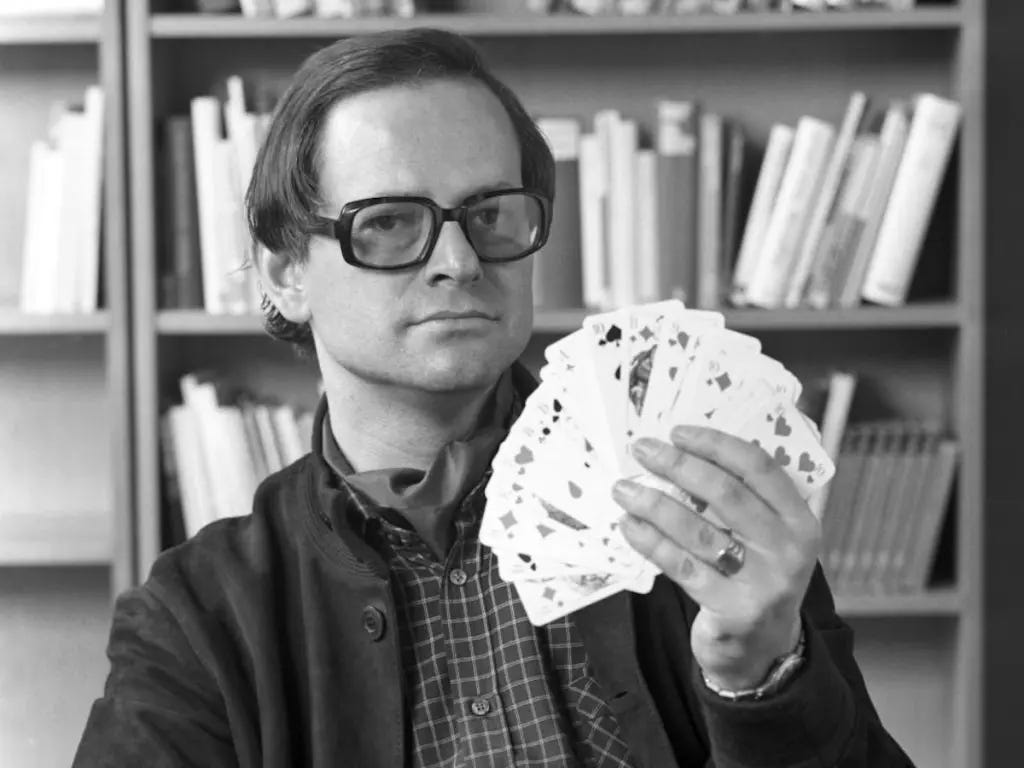Tractatus Logico-Suicidalis
Thoughts on Suicide and the Author Hermann Burger (Wakefield Press, 978-1-939663-88-7)
The one thing I do not want to do is commit suicide. I don’t have a moral issue with someone who wishes to die by their hand/mind, but for me, misery is a battery for my writing as well as how I look at life. The more I suffer, the more I look at life in its most twisted and fascinating manner. Suicide is disturbing only when one is in a social circle with someone who wants to die. I don’t think I could bear the pain if I knew someone who was flirting with the idea of committing suicide. The physical pain, or knowing your fate, is horrific and is understandable. But I can never wrap my head around the cause of suicide due to depression. Depression is real, and I have known and know people who suffer from depression, but for me, to grasp the undertow of such feelings and thoughts is the gasoline that gets me thinking. Happiness is extraordinary, but it is tough to write about being happy, and even writing that last sentence made me yawn. It’s hard to articulate happiness, but when I think of sadness or depression, I feel a whole world is opening up to me.
I thought the Swiss author and poet Hermann Burger’s Tractatus Logico-Suicidalis: On Killing Oneself would be challenging to read, not because of his prose style, but because of the subject matter. Having a book devoted to the subject matter of suicide, I thought maybe a tad too much, but the book is also a mixture of clear-sided thinking, and one wonders if the author of such a book would survive. He didn’t. Burger killed himself by taking an overdose of sleeping pills. Burger is the only writer that I know of (or read) besides Yukio Mishima who can articulate suicide as a positive step. It’s not a book that would encourage the reader to take that step into the unknown, but more of an understanding of what suicide is culturally as well as a reflection of how one lives one's life.
If one could even call it positive to approach life knowing that one is going to die, it is a very human approach to facing the everyday. There are sentences that are straight to the point in that they have a beginning and an end (period). Then some sentences start but wander around before they close, and Burger, I suspect, is a writer who reflects on life as long as his sentences.
Burger has two books translated into English, both by Adrian Nathan West. The novel Brenner, which I have not read yet, is about a family member who takes part in its multi-generational attachment to the cigar. Like Proust with his cookie, he reflects on his life through cigar smoke before the pull of suicide. The other book is Tractatus Logico-Suicidalis, which is officially a fictional work. Still, in actuality, it is a book without a plot and is very much a work of philosophy. 95% of the book is aphorisms focusing on suicide, and its structure is very much based on Ludwig Wittgenstein’s Tractatus Logico-Philosophicus. This is a book I will never give away because it is a handy reference to use when finding a quote on suicide.
Since turning 70, I have often thought of my (for sure) passing and wondered what it would be like. Going through my mom and Uncle’s death in 2022, that world is not a mystery to me anymore. It is not even worth fretting about death because there is nothing like worrying about where your next meal will be, when, and where it will come from. That is a real worry there, but death is not abstract; it is like a painting on one’s wall. Stand in front of the work, and many things will come to mind, and death may be the point where one cannot reflect. So, it makes sense to leave literature or work around that confronts your perspective on a landscape of your choosing.
The issue of assisted suicide comes up a lot in the news and usually deals with individuals who have terminal or incurable conditions. I can’t imagine being against someone going through this route in such situations. Then again, how could I possibly measure someone’s misery or depression? Suicide in one’s social surroundings is a feeling of failure or missing the opportunity of missing the signals that person is giving. There are situations where no one could have helped that person, or, perhaps, a kind word, or taking responsibility for that person’s welfare. We all live in a delicate situation where we are inches away from disaster in all matters of existence. Burger’s book is a clinical look at suicide, but as a reader, I don’t feel the emotional concern for such a subject matter. Still, the book is very much part of the culture and literature by Ludwig Wittgenstein, Emil Cioran, and Thomas Bernhard.
It’s a struggle for those who fight to enhance their lives through whatever misery brings to the table, and yet, equally a struggle for those who want to end their life. It’s not easy to kill oneself or try to save yourself. As the reader can gather, I’m confused about what to think regarding the avenues given to us or the choices we have to make regarding the cards given to us.
P.S. Wakefield Press will publish Hermann Burger’s “Diabelli” in 2025. I can’t wait for that book.





Interesting. In a review titled Suicide Squad of Alexander Waugh's 2008 "The House of Wittgenstein", Jim Holt wrote:
He and his timorous wife, Leopoldine, brought nine children into the world. Of the five boys, three certainly or probably committed suicide and two were plagued by suicidal impulses throughout their lives. Of the three daughters who survived into adulthood, two got married; both husbands ended up insane and one died by his own hand. Even by the morbid standards of late Hapsburg Vienna these are impressive numbers. But tense and peculiar as the Wittgensteins were, the family also had a strain of genius. Of the two sons who didn’t kill themselves, one, Paul (1887-1961), managed to become an internationally celebrated concert pianist despite the loss of his right arm in World War I. The other, Ludwig (1889-1951), was the greatest philosopher of the 20th century.
By the way, does it mention anything about the photo for the cover of Burger's book?
Thanks Tosh,
I’m reading Beckett as is my want and the paradox of living and dying seems to be his continual question. Very much like a Zen koan. We live constantly between This and That which fascinates me. Burger’s book focuses the problem but certainly doesn’t solve it. Thanks for this.